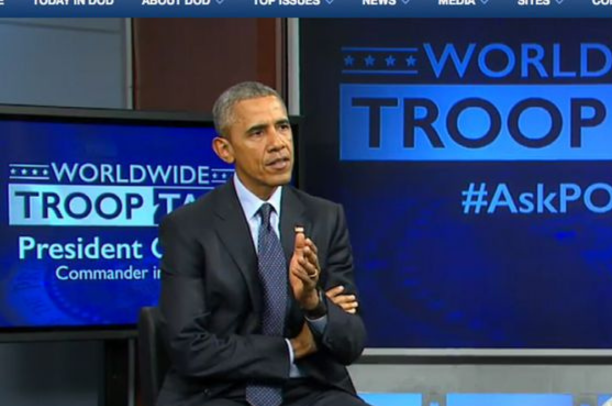Social Impact Storytelling for Sustainable Development: Leveraging Stories to Drive Change

Have you ever wondered how a simple story could change the course of history? Or how the power of words could unite communities and inspire action across continents? Imagine if your story—rooted in your personal experiences and aligned with the global drive for sustainable development—could spark real, lasting change. This is the untapped potential of social impact storytelling.
Learn How to Leverage Your Story through our Story To Asset Framework.
For social entrepreneurs, particularly within the African diaspora, storytelling isn’t just a tool for engagement; it’s a catalyst for transformative change.
In this article, we’ll explore how you, as an African diaspora entrepreneur, can leverage storytelling to advance the Sustainable Development Goals (SDGs), attract support, and make a tangible difference in the world.
Through the lens of the experiences of Obehi Ewanfoh, a renowned storyteller and social impact coach, we’ll examine how you can turn your narrative into a strategic asset that drives social change.
In an article titled “10 Success Stories Showing That Social Entrepreneurship Can Be Profitable” on EU-Startups.com, Bojana Trajkovska, a startup enthusiast from the Balkan region currently exploring the entrepreneurial community in Italy, shares her insights.
She notes that the intersection of business and social issues has gained significant momentum over the past decade. More and more startups are now identifying societal challenges and developing innovative solutions to address them.
While social entrepreneurship is primarily driven by the desire to meet societal needs, these 10 success stories demonstrate that it’s possible to do good while also generating profit.
Understanding the Power of Storytelling in Social Impact
Storytelling is an ancient practice that transcends cultures, languages, and time. It’s how we communicate values, share wisdom, and build connections. In the world of social impact, stories are not only vehicles for spreading awareness—they are powerful instruments for inspiring action.
Social impact storytelling allows you to humanize complex issues, making them accessible and compelling. Whether you’re addressing poverty, gender equality, climate change, or education, stories make these global challenges real and personal.
For example, a narrative about a young girl overcoming barriers to education in rural Africa doesn’t just highlight an issue—it illuminates the faces and voices behind the statistics.
According to a 2019 report from the United Nations, 85% of global poverty exists in Africa, with millions of people living in marginalized communities.
Social impact entrepreneurs are positioned to create solutions to these problems, but they need effective tools to connect with audiences, raise awareness, and drive action. This is where storytelling becomes invaluable.
Aligning Your Story with the Sustainable Development Goals (SDGs)
The United Nations’ SDGs, adopted by all member countries in 2015, present a global agenda for ending poverty, protecting the planet, and ensuring prosperity for all. With 17 interconnected goals, the SDGs represent a shared blueprint for peace and prosperity, and they offer an ideal framework for social impact entrepreneurs to frame their work.
As an entrepreneur in the African diaspora, your story can directly contribute to achieving the SDGs. By aligning your narrative with the SDGs, you not only position yourself within a global conversation but also increase your credibility and potential for partnerships. Let’s take a closer look at how you can align your story with some key SDGs:
- SDG 4: Quality Education: Your story could focus on the power of education to transform lives, particularly in underserved African communities. A narrative about how a scholarship changed your life, or how you’re helping to build schools in rural areas, can spark a global conversation about the importance of accessible education.
- SDG 13: Climate Action: Stories about climate change and environmental conservation in African countries are powerful because they highlight the local impact of global issues. By sharing personal stories of how communities are adapting to changing weather patterns or working to protect forests, you can inspire people to take action.
- SDG 5: Gender Equality: Narratives that emphasize the struggles and triumphs of women in the diaspora can challenge stereotypes and inspire others to support gender equality movements globally.
By connecting your personal or organizational story to these global goals, you make your work part of a broader effort to address pressing issues and promote sustainable development. Moreover, aligning your story with the SDGs shows potential investors, partners, and supporters that you’re committed to real, measurable change.
Obehi Ewanfoh’s Story to Asset Framework
One of the leading advocates for the power of storytelling in social entrepreneurship is Obehi Ewanfoh. Through his “Story to Asset” framework, he has helped numerous social entrepreneurs craft their narratives into strategic assets.
See also Amplify Your Story: The Story To Asset Framework Pt.4
Ewanfoh’s methodology emphasizes the idea that storytelling is more than just an act of sharing—it’s a tool for creating value, building relationships, and driving change.
His framework guides entrepreneurs in using their personal or organizational story to connect with their audience and amplify their impact.
For example, if your organization’s mission aligns with SDG 2 (Zero Hunger), sharing the story of how your business helps farmers in Africa increase crop yields through sustainable practices is not only powerful, it’s an invitation for collaboration, funding, and action.
Obehi’s work is rooted in his belief that personal stories are integral to social impact. In his case, his own story as a Nigerian-born writer in Italy, with a focus on African diaspora issues, is not just about his journey but also about the power of African identity in shaping global conversations.
By sharing his experiences with cultural identity, diaspora challenges, and social entrepreneurship, he’s inspired a global movement of like-minded individuals committed to social change.
Crafting Authentic Stories that Resonate
For your social impact story to drive real change, it must be authentic. People can spot inauthenticity from miles away, and when it comes to social impact, authenticity is paramount. Your story needs to resonate with your audience on an emotional level to inspire action.
A key element of crafting an impactful story is showing, not telling. Rather than simply stating statistics or making claims, illustrate the change you’re striving to make through real-life examples. Paint a vivid picture of the challenges faced and the solutions you’re implementing. Whether it’s the success of a sustainable agriculture project or a grassroots education initiative, your story should evoke empathy and action.
Incorporating cultural elements of your African heritage is crucial, too. Stories from the African diaspora have a unique resonance because they speak to shared experiences, struggles, and triumphs.
Highlighting how your African heritage shapes your work can build deeper connections with your audience and invite others into the conversation.
Amplifying Your Story through Digital Platforms
In today’s digital age, your story has the potential to reach a global audience. Social media platforms like Instagram, LinkedIn, YouTube, and Twitter are invaluable tools for social impact entrepreneurs looking to spread their message. Through video, imagery, and interactive content, you can amplify your story and engage a wider audience.
For example, organizations like The One Campaign have successfully used digital storytelling to raise awareness about global poverty and health issues. Their use of powerful images and personal narratives has mobilized millions of people to advocate for change.
See also Reimagining Women’s Health: A Call to Action in the 2024 US Presidential Election
By leveraging digital tools, you can create viral campaigns around the SDGs, engage with potential partners, and attract the resources necessary to scale your impact.
Measuring the Impact of Your Story
As a social entrepreneur, you must not only tell your story but also track its impact. How do you know if your narrative is inspiring the desired action? Metrics like engagement rates, donation amounts, social media shares, and partnerships formed can give you valuable insight into the effectiveness of your storytelling.
The African diaspora has a powerful voice in shaping global change, and by aligning your stories with sustainable development, you can help create lasting impact. According to the African Development Bank, the African diaspora has contributed over $50 billion annually in remittances, a testament to the power of diaspora-driven change. Through storytelling, this same community can be mobilized to drive social impact on a global scale.
Conclusion: Your Story Can Drive Change
Your story has the power to not only inspire but also to change the world. By aligning your narrative with the SDGs and using tools like Obehi Ewanfoh’s Story to Asset framework, you can transform your personal or organizational experiences into powerful catalysts for social good. Your story can drive awareness, foster collaboration, and inspire action.
Now is the time to harness the transformative power of storytelling. Your journey, shaped by African heritage, can fuel a global movement for sustainable development. So, start sharing your story—because the world is waiting for it.
Learn How to Leverage Your Story through our Story To Asset Framework.





